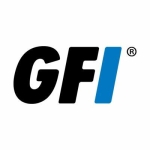Our customers use Forcepoint like a cluster, which is standby active and passive. They also use it for the perimeter firewall, so it's on-premises.
The primary use case for this solution is when a customer asks for something that does automatic optimization, as well as security at the same time. It also has high performance capabilities, including enabling the SSL decryption feature. I recommend Forcepoint for these customers. If the customer has another solution for deep packet inspection of SSL encrypted traffic, I recommend Palo Alto, because they already have a solution for deep packet inspection for the kind of traffic in the network. From my point of view, at this point they do not need Forcepoint, so I would recommend Palo Alto.
They are great in every single area except for the optimization feature. The optimization is not really ready. If you want very good optimization, you have to add it to the network. I think if they make some enhancements in that area, they will replace every other product in no time.
We also need more IPS detection rules.
We've been using this solution for about one year.
I have a very good impression of this stability.
After three or five years, if you want to change the model with a bigger model because of the network expansion, I think they support that. Our clients are huge enterprise businesses.
I've never actually contact technical support because I'm not the person who is responsible for that. I heard that they are okay.
The initial setup is straightforward. The installation is very easy. With full functions, it takes about five days to deploy.
We have a technical team that does deployment for Forcepoint, Palo Alto, etc. We do the implementations of every security product that we provide. We use two people to deploy Forecpoint NGF: a senior engineer and junior engineer.
I believe the licensing fee is for one year, three years, and five years, or something like that. If you want to increase the support level from a simpler level to platinum, I think that there's a cost. There are differences between every kind of support, but I don't know the numbers.
They just need to make sure that their environment is ready for implementing the firewall. They have to prepare for about two hours of downtime because we need some downtime to do the initial configuration. They need to be prepared for the deployment plan. That's all.
The biggest lesson I learned is that you cannot provide everything in one box. You can provide everything in one box, but you cannot provide everything deeply with the same quality all in one box. You need to give up on something to gain another. I'm always telling the customer, what's your biggest issue? Is it security or performance? Is it task optimization? What is your biggest concern? Based on their answer, I recommend one of the vendors that we work with.
If he said that he does not have any problems with anything, he just wants to get everything, then I provide them with Forcepoint and tell them that they will have some issues in a certain area. If he is okay with that, we go with the product. If he isn't okay and cannot accept that risk or that point, then we go with another vendor.
What I learned from them is that you can provide everything in one box, but you cannot provide everything with the same quality in that box.
They have really good capabilities if you want to use it. So I do recommend them in some cases, when the customer needs some optimization, along with performance and security. If they want everything in one package, I recommend Forcepoint because they have everything. That's why I recommend Forcepoint in that situation.
I would rate the solution as eight out of ten. If they solve the problem of optimization and added those IPS rules, I believe that they would deserve nine of ten. Nothing is perfect, though.
















